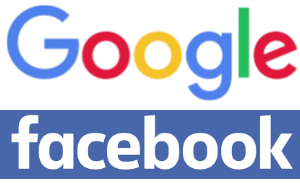Rupert Murdoch’s News Corp reckons it’s $1 billion. Google reckons it’s a piddling $10 million. News and Nine Entertainment have enlisted the Government and the ACCC in their battle to force Google to pay for their news content. Just how much money does Google Australia make from traffic to its site from news-related queries? Kim Wingerei looks at the ACCC’s draft news media “mandatory bargaining code” and the likely outcomes of the stoush between new media and old.
Nine’s Peter Costello thinks it’s at least $600 million a year. News Corp boss Michael Miller reckon it’s more like $1 billion. Facebook has had little to say on the matter, but Google’s Australia CEO, Melanie Silvia, suggests it is no more than $10 million.
 Google argues that news related searches rarely serve up ads in its search results and that Google News itself doesn’t carry ads. It sees itself as more of a free online newsstand and gateway, from which the media companies benefit; Google’s beloved mantra: “Don’t be evil” in action.
Google argues that news related searches rarely serve up ads in its search results and that Google News itself doesn’t carry ads. It sees itself as more of a free online newsstand and gateway, from which the media companies benefit; Google’s beloved mantra: “Don’t be evil” in action.
A more direct threat to the news providers is Facebook’s model of user-generated posts and shares. Google has more views in total, but Facebook users spend much more time on their platform. Facebook also displays more of the source content.
Google and Facebook combined are by far the biggest source of visitors to media websites. According to the Reuters 2019 Digital News Report, only 30% of visitors go directly to the news websites, the rest go via search and social media.
Nine and News Corp argue that the digital platform giants use their news (and other) content to drive traffic to their platforms first, and collect advertising revenue in the process – more than 50% of the total online advertising spend according to the ACCC Digital Platform Inquiry Report, published last year.
The truth is that the digital platforms have been quicker and smarter than the traditional media companies in adapting to changed consumer habits. Murdoch had his chance with Myspace but had to acquire ‘Realestate.com.au’ and similar assets to make money from online investments. The old Fairfax was much the same, ‘Domain’ remains the prized asset in Nine’s faltering asset stable.
The real questions are who needs who the most, and who holds the best cards?
To try to break the impasse, the ACCC is suggesting mandatory negotiations between the parties to arrive at a reasonable model for revenue sharing, with severe penalties to Facebook and Google as the stick. There is no carrot.
According to the draft document, the code:
“seeks to address the fundamental bargaining power imbalances between Australian news media businesses and major digital platforms.”
“Platforms” mean Facebook and Google, but others may be included in the future. Twitter beware.
The code’s emphasis is on revenue sharing and advance notice of algorithm changes. It will compel Google and Facebook to give 28 days notice of changes they plan to make which that will affect how search results are “calculated”. The notice period will give media companies time to adjust how their content is displayed to accommodate the change.
Sudden algorithm changes have been a long term bugbear of not only media companies but anyone relying on search engines or social media for their online activities. In 2018, Facebook changed its algorithm, prioritising shared posts over external content. This forced some digital publishers to shut, while others experienced substantial reductions in traffic.
It is unclear how transparency about planned algorithm changes by the platforms could be accorded to media companies exclusively, and not to everyone; let alone confined to Australia.
The rest of the explanatory document from the ACCC focuses on the revenue sharing arrangements.
To be party to the potential revenue “bonanza”, eligible companies must apply to the Australian Communications and Media Authority (ACMA). Eligibility is broadly defined as producers of “core news”:
“… journalism on publicly significant issues; journalism that engages Australians in public debate and informs democratic decision making; and journalism relating to community and local events.”
Participating companies must adhere to professional editorial standards, maintain editorial independence from the subjects of their news coverage, operate primarily in Australia and have annual revenue in excess of $150,000.
Although the ACCC is suggesting a collective bargaining mechanism for smaller media companies, the $150,000 revenue bar may well preclude many smaller media outlets, especially in the regions, and especially those that need the support most.
The draft has other, more glaring omissions. It does not mention how to handle pay-walled content. And as Alan Kohler and others have pointed out, what if a media company opts out of the code and by doing so receives preferential treatment by Google and/or Facebook? What a lawyer fest that would be!
The ACCC goes to great lengths to outline the process of arbitration. It “must” only take three months and if no agreement can be reached, then a short period of mediation is followed by binding arbitration. Should the platforms fail to comply, fines of up to 10% of annual revenue will apply.
In a somewhat cryptic statement, ACCC chairman Rod Sims maintains that they know exactly how much revenue Facebook and Google make in Australia. In the oblique world of global corporations that’s a bold statement. The behemoths have deep pockets, smart accountants and clever lawyers. Moreover, Mark Zuckerberg and the scions of Alphabet Inc are unlikely to lose too much sleep over fines of a few hundred million. The risk to them of a precedent being set in Australia of paying for content, with repercussions elsewhere in the world, is far greater.
The code will take many months to grind its way through the legislative process. In the meantime, Google and Facebook will strike deals with the mainstream media publishers. The ACCC’s tinkering around the edges of what is a much bigger problem of market power will be rendered ineffectual by the realities of business as usual. There is too much at stake – probably a bit more than $10 million, but less than $1 billion…
Extinction Rebellion: News Corp and Nine decry Google and Facebook, Government hops to their rescue
Kim Wingerei is a businessman turned writer and commentator. He is passionate about free speech, human rights, democracy and the politics of change. Originally from Norway, Kim has lived in Australia for 30 years. Author of ‘Why Democracy is Broken – A Blueprint for Change’.

